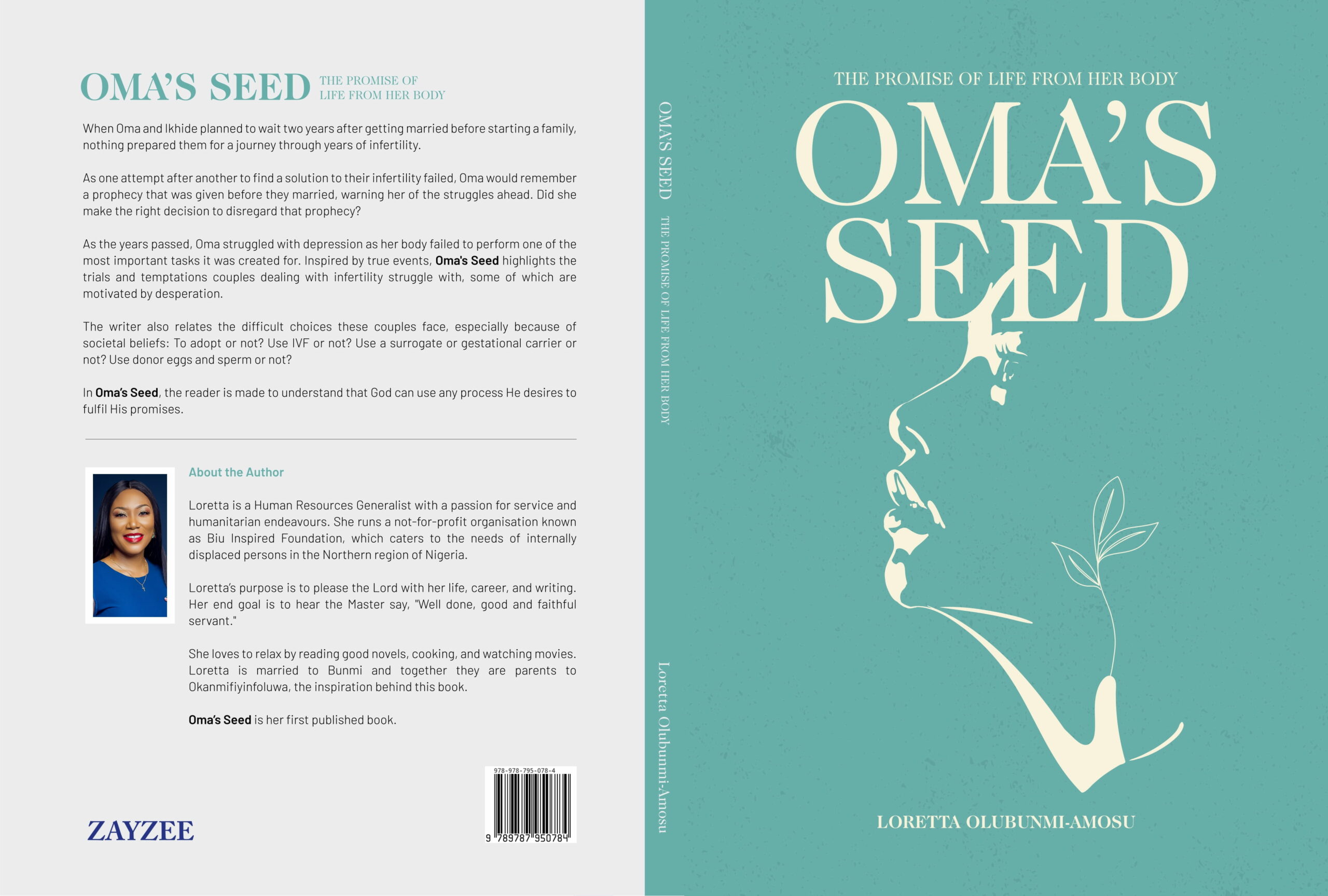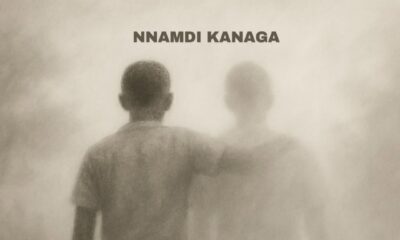Features
BN Book Review: Oma’s Seed by Loretta Olubunmi-Amosu | Review by The BookLady NG

Across space and time, storytelling unites our experiences and makes us feel less alone in our separate realities. Arguably, there is no greater feat that literature has helped us achieve than connecting us in adversity and joy. We grow into empaths, someone able to experience other people’s feelings outside of their own perspective. This has proven to be one way to get immersed in Loretta Olubunmi-Amosu’s Oma’s Seed. And to say that Olubunmi-Amosu’s Oma’s Seed will do for womenfolk what Nawal El Saadawi’s Woman at Point Zero did is not entirely far from the truth. These are stories that spotlight the plights of women in our society; stories that make them feel seen without restrictions to their background or race.
Oma’s Seed is quite the story that illuminates the harrowing experiences of a woman as she navigates infertility and childbearing. Oma is all shades of joyful on her wedding day, completely oblivious to the arduous journey of waiting in the next decade of her life. She enters the union whilst ignoring the prophecy of infertility and decides to brave it with the love of her life. She would come to ponder over the wisdom of that decision, but there can be no regrets. Written with such refreshing candour, Oma’s Seed ignites a barrage of questions that the author does her best to explain at the tail end of the book. It is important to mention at this point that the book is a story that is based on the real-life experiences of the author, subtly categorising the book into a faction.
Oma is a Christian and one of the tenets of Christianity resides in the belief that prophecy is meant to guide, therefore, this forms one of the central ideas of this story. The author takes us through Oma’s deliverance sessions and prophet visits that are meant to help her make sense of her life’s trajectory. She surrenders to most of these prophecies but soon enough she begins to understand that her relationship with God has no limits and she can hear God’s words for her life directly. This epiphany marks a huge difference in her journey with God. But this doesn’t stop her from seeking ways humanly and divinely possible to conceive.
Before her total surrender to hearing God for herself, Oma falls prey to womb massagers. She falls prey to people who constantly deceive her and exploit her condition to demand for money. As a woman in need, she succumbs to their every whim. The author captures her desperation in the way she resorts to taking herbs, getting injected without question and sowing ridiculous seeds for church projects. Judging Oma might seem easy for someone who has never been at the end of their tether. But for someone who has known anguish, Oma’s story might read all too familiar. After her abysmal experience in the hands of the people she thinks she can trust, she decides to refocus and try the one means she has been avoiding — in vitro fertilization.
Loretta Olubunmi-Amosu has written this book as a love letter to the couple trying to conceive. It is a reassurance to them that she has been through all the phases of infertility and has emerged a success. Many people see this challenge as a failure, especially on the part of the woman, to perform her God-given duty. They forget that infertility could be the fault of either the man or the woman. Loretta provides insights into the state of her mind when the depression from failed IVF is at its peak. She shares how volatile this makes her union, how easily both couples can drown separately when they’re supposed to keep each other afloat. She emphasises the importance of having a community of people who hold you up in prayers and never hold back resources. With Oma’s story, we are given glimpses into Loretta’s long journey to being a mother. While the plot of this story largely reflects her reality, she has infused some imaginative details in the story and even so we can infer that no journey of infertility is linear.
“Many stories matter. Stories have been used to dispossess and to malign. But stories can also be used to empower, and to humanize.” — Chimamanda Ngozi Adichie
To say that Loretta Olubunmi-Amosu’s Oma’s Seed is an empowering and humanising story would be cutting to the chase. By telling this story, Loretta has made women in the “waiting room” feel less alone. By articulating her deepest struggles through Oma’s story, she has planted hope in place of despair. Her vulnerability is a gift and a salve and she’s achieved this by simply telling her story.





















